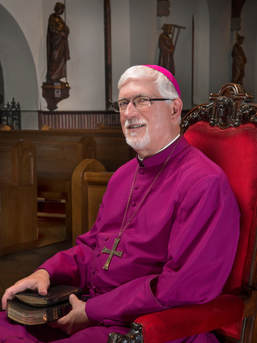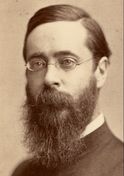 On Prayer Book Revision One question before General Convention this summer was whether it is time to revise our Book of Common Prayer. The bigger question was, if we revised it, how extensive or comprehensive should revision be? The answer coming out of convention was a cautious “yes” to a process for some revision, but “no” to comprehensive or substantive revision. Since there seems to be some confusion, I offer a few thoughts about what this means. Prayer book revision is not unusual. The Episcopal Church Book of Common Prayer, first ratified in 1789, has been revised may times – in 1892, 1928, and 1979. The 1892 and 1928 revisions were relatively minor. The 1979 revision was quite comprehensive and substantive. Each generation, it seems, takes a fresh look at whether the current version conveys the eternal truths of the gospel of Jesus Christ and enables the church to articulate its worship of the one, holy, and undivided Trinity, as clearly and fully as possible in contemporary language. The resolution passed at General Convention (A068 Plan for the Revision of the Book of Common Prayer) “memorialized” the current 1979 Book of Common Prayer which I take to mean that it is the standard prayer book going forward and we will not be replacing it soon. If at some point we produce a new prayer book, it will look and feel very much like the one we are using. Even so, there is need to find ways in our common worship to be more inclusive. That means avoiding using “man” and masculine pronouns when we are referring to people - men and women. Though many of us grew up with this literary convention, that understanding is increasingly not the case. For many, the language has become jarring and distracting to worship. What is theologically trickier is determining more “expansive” language for our common worship. That means finding ways to speak of and to God in language that does not always imply God is somehow “male”. “Father, Son, and Holy Spirit” is a fundamental Christian name for God we will continue to use, and we will not do away with all masculine language for God we have received from the Bible. But both the Bible and the Christian tradition provides a rich variety of names and images for God - some inanimate, some feminine. There are theologically responsible ways to incorporate some of these names and images to enrich our common worship. We have already experienced this inclusivity in recent years without revising the prayer book. General Convention authorized resources like Enriching Our Worship, containing inclusive and expansive Eucharistic liturgies, Morning Prayer and Evening Prayer. Some diocesan congregations have been using these liturgies on occasion. I share the sentiment of the first Bishop of Fond du Lac, John Henry Hobart Brown, who said this about revision of the Book of Common Prayer:
What General Convention proposed is neither a “stiff conservatism” nor radical revision leading to a “rude shock”. So with my approval, some of our diocesan congregations will be using some new liturgies over the next months and years as we enter into this process of discerning what kind of revisions are helpful. If yours is a congregation using these liturgies, your input about your experience will be a valuable contribution to the church’s discernment as we adapt our worship to the requirements of the present age.
Under the Mercy, The Rt. Rev. Matthew Gunter Bishop of Fond du Lac |
Categories
All
|



 RSS Feed
RSS Feed